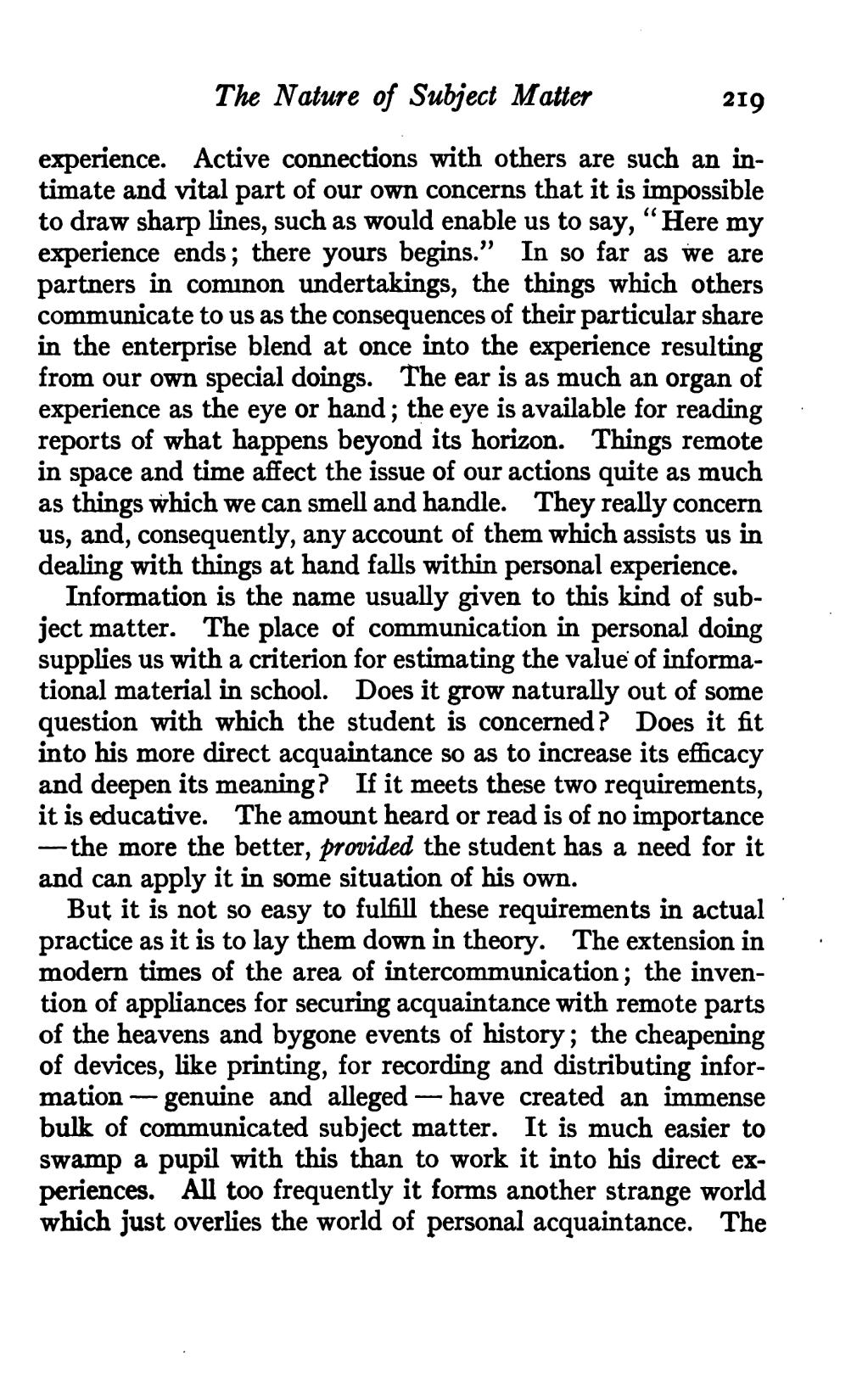experience. Active connections with others are such an intimate and vital part of our own concerns that it is impossible to draw sharp lines, such as would enable us to say, "Here my experience ends; there yours begins." In so far as we are partners in common undertakings, the things which others communicate to us as the consequences of their particular share in the enterprise blend at once into the experience resulting from our own special doings. The ear is as much an organ of experience as the eye or hand; the eye is available for reading reports of what happens beyond its horizon. Things remote in space and time affect the issue of our actions quite as much as things which we can smell and handle. They really concern us, and, consequently, any account of them which assists us in dealing with things at hand falls within personal experience.
Information is the name usually given to this kind of subject matter. The place of communication in personal doing supplies us with a criterion for estimating the value of informational material in school. Does it grow naturally out of some question with which the student is concerned? Does it fit into his more direct acquaintance so as to increase its efficacy and deepen its meaning? If it meets these two requirements, it is educative. The amount heard or read is of no importance—the more the better, provided the student has a need for it and can apply it in some situation of his own.
But it is not so easy to fulfill these requirements in actual practice as it is to lay them down in theory. The extension in modern times of the area of intercommunication; the invention of appliances for securing acquaintance with remote parts of the heavens and bygone events of history; the cheapening of devices, like printing, for recording and distributing information—genuine and alleged—have created an immense bulk of communicated subject matter. It is much easier to swamp a pupil with this than to work it into his direct experiences. All too frequently it forms another strange world which just overlies the world of personal acquaintance. The
